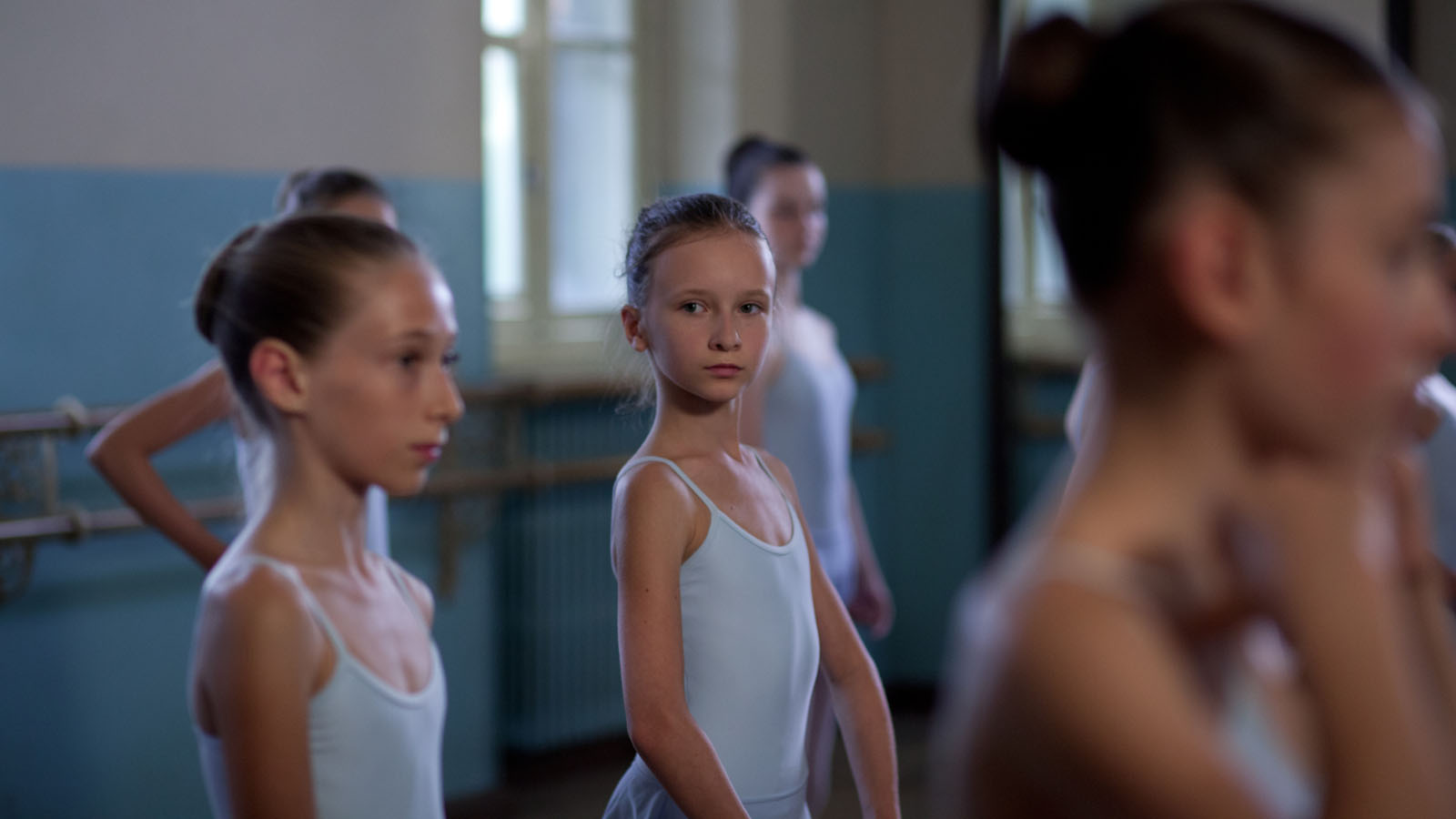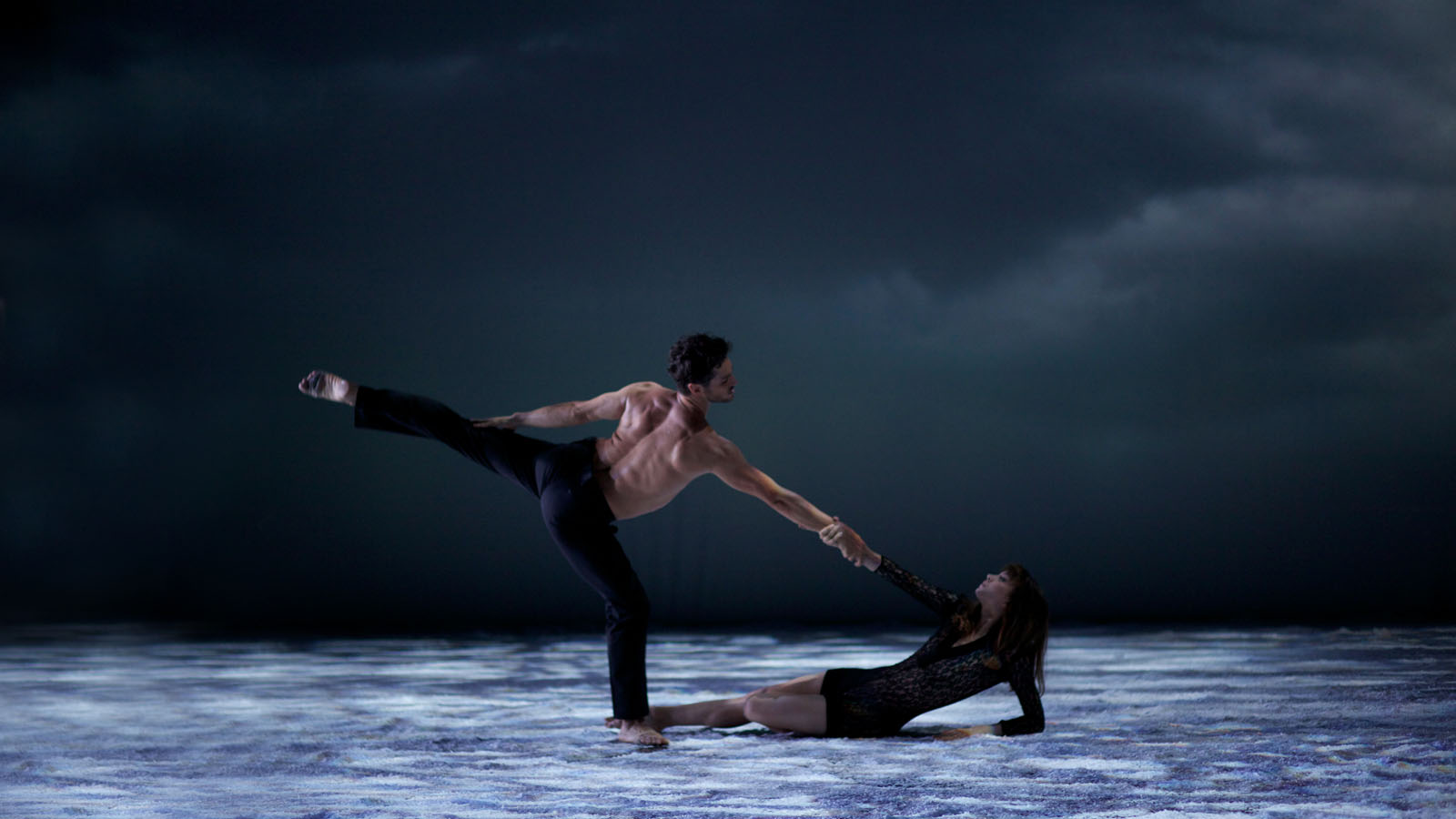Learn to walk. Speak. Dance.
Polina, played by Anastasia Shevtsova, is a very promising ballet dancer. Supported by her parents who see in her the promise of great future success, we follow her in her journey as a professional dancer and woman. A touching portrait on the horizon of a desire that is born before our eyes.
Rigorous learning
Polina is very early pushed by her parents to practice classical dance. The film begins with its first competition: that of Mr. Bojinsky's entry into the class. This is an opportunity for us spectators to dive into the world of Russia in the 1990s. A cold atmosphere, perfectly sticking to the artistic education she receives.
As we commonly know, dance is a very demanding art. And we realize it quickly with this teacher who offers him a very strict education, even humiliating at times. But Polina is not discouraged. She rehearses intensely outside of class, she wants at all costs to achieve her goal: to pass the entrance exam to the Bolshoi Ballet. She will eventually get there, but she is at a point in her life where she is plagued by doubt. The young woman is not satisfied with herself. And then, she met this young man, a Frenchman, played by Niels Schneider.
Although we see Polina evolve throughout the film, the question of learning remains essential. Even when she excels, she is led to new experiences. Constantly thirsty for learning, no teaching is enough for him. And this is where the scenario is full of intensity, it is when this learning of dance mixes with that of life.
While she was admitted to the Bolshoi, she decided to follow her heart as well as her new curiosity for contemporary dance. This departure for the France is a source of disappointment for his parents. But it is also an opportunity for her to learn to separate from her family and find her way.

The romantic encounter
Partly due to her upbringing, Polina is a reserved, discreet young woman. He was taught to contain his emotions. This mastery has always served his talent for technique. Her body has integrated a whole mechanic, aesthetic certainly, but which blocks her in her creativity. On the other hand, it is thanks to his love life that his buried desire resurfaces. And it is on this point that the film enriches its plots.
When she arrived in France, she adapted. But despite the fact that his movements are mastered to perfection, his teacher, played by Juliette Binoche, reproaches him for not dancing. For her, dancing is feeling, it is being crossed by her soul. Wanting to do well, Polina complies with the demands of the artist but dancing with her partner, who is her current boyfriend and is injured. She will therefore not be able to assume the first role that was offered to her.
From then on, his life escaped him. She no longer controls her body, or her life at all. Adrien, her boyfriend, slips through her fingers. Her new partner embodies her actions and intentions when she dances. Not her, her teacher told him.
While Polina had the ambition to succeed in this school, she stops. Without Adrien, she no longer dances. At the same time, she continues to tell her parents how busy she is with European tours. They are proud of her, or rather of the illusion of what she could be.

Letting go: when the inner life becomes creation
A period ensues when everything becomes confused. This aspect is found in the staging: sequences follow each other in different places, sometimes without transition. We are lost, as Polina is in her life and we do not always know in which direction she is going. Will she stop dancing permanently? How much time elapsed between his departure from Russia and the end of the film? It's hard to say.
Admittedly, " Polina, danser sa vie" has some flaws: it is difficult to imagine Juliette Binoche as a dance teacher. But it is above all the story of an inner journey. The temporality is necessarily altered. Thanks to a brilliant script and a fine and intense staging, we can say that it is a very successful film.
Deep down, Polina is constantly searching for her own desire. Kept for a long time in a framework that was too rigorous and oppressive, he had difficulty expressing himself. And it is thanks to her failures, her artistic, professional, love trials, that she manages to free herself. Without telling you too much, the end scene, when she presents her first creation, represents the advent of her life as a woman. And this is where his inner life becomes creation.

In short, "Polina, danser sa vie" is a magnificent feature film about the journey of a desire. It is a hymn to dance, a promise for the future. Anastasia Shevtsova's interpretation of Polina is moving and manages to touch us deeply. A film not to be missed under any circumstances!
Official release on November 16, 2016, duration 1h48.
Lauren Mary




































